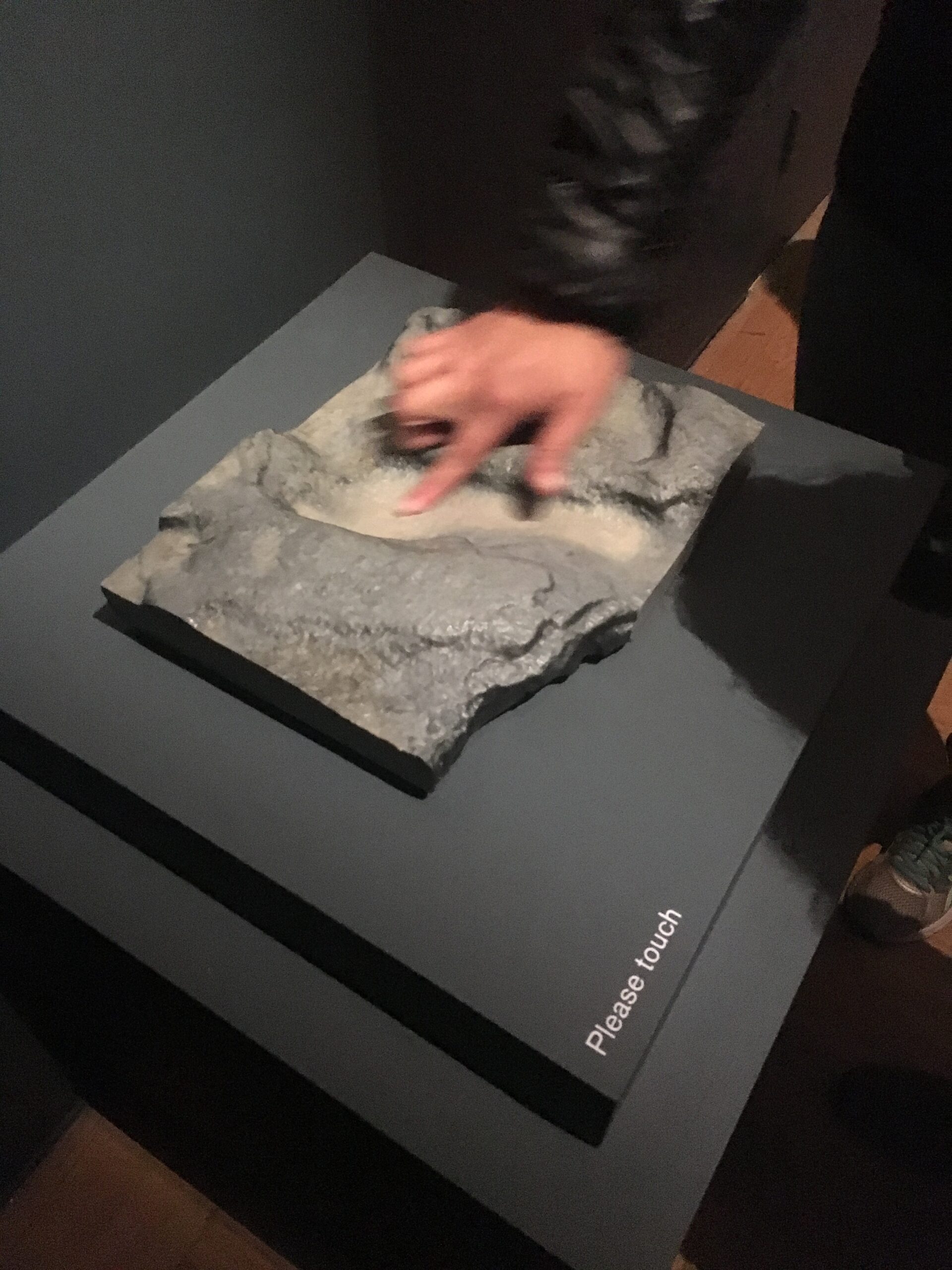
Inherent to being abroad is the experience of living somewhere else; whether one is living in an urban center far from home, as I and my fellow program mates are doing, or living in an isolated area, cultural differences small and large exist. The British Museum’s free exhibition in the Asahi Shimbum Displays room, entitled “Moving stories three journeys,” explores thematically what it means to be an immigrant.
Two particular displays struck me; that of a footprint from approximately one million years ago, hypothesized to be from before humans discovered fire, and a display of pen-on-paper drawings, done by Sadik Kwaish Alfraji, an Iraqi immigrant to the Netherlands.
The display was set up so that each row was matched with a poem. There were 6 poems in total and many more pictures. However, I liked this particular drawing most for its simple and poignant understanding of the immigrant experience. It seems to be the image of the same man on both sides, one slightly more faded than the other. To me, that is an incredible metaphor for what it means to live in one country while being borne of another. Identities supersede themselves as time moves on—as someone spends more time in one country, they become less attached to the other.
The most significant feeling I took from the exhibit was a feeling of fear—a fear both of where one was going and a fear of what they might lose by leaving. It made me think of my family’s own experience with migration. My great-great grandmother, Maria del Tredici, emigrated to the United States in search of a better life. She moved to San Francisco. She spoke no English.

I had never considered the raw fear in moving to a place so new, but the drawing made me reflect on the paradoxical dilemma of the immigrant. On one hand, they move in search of a better life. For Alfraji, he wanted to escape the political danger Iraq posed for him at the time. For my great great grandmother, she was leaving in pursuit of work from a failing Italian economy. In the case of the person with the footprint, they left because, by necessity, they needed to find shelter and resources to survive. However, by leaving, each person left pieces of themselves. For the person of the footprint, they could only hope to find a safer a place where they can rest, but leave behind their knowledge of an area and are forced to start again. For Alfraji, while he was going to a more politically stable country, he was leaving behind family, friends, and a known culture and custom for a place that was suspicious of Iraqi men. For my great great grandmother, she was in search of a better quality of life, but she also left behind family (three sisters, in this case), as well as linguistic fluency for unadulterated otherness.
In all of these cases, each person needed something from the new place, so much so that leaving comfort and familiarity was a worthy cost. Now, whenever I walk around London, I will not only see all of the people and hear the languages, but wonder what brought them here in the first place.
~Laudie Porter, ’18
